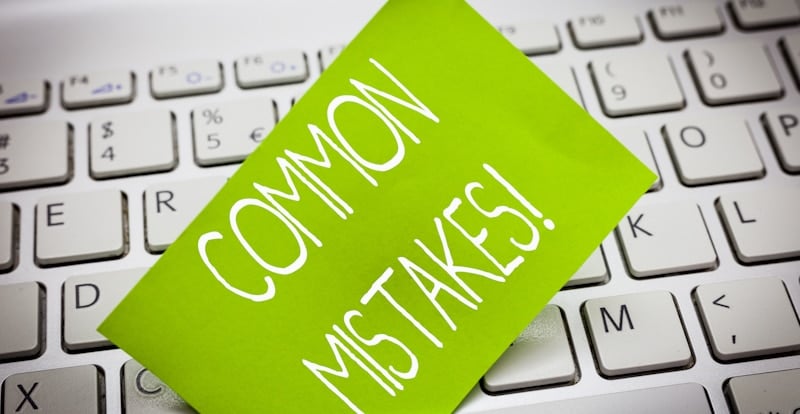During the early 2000s, mobile phones were not the gadgets used by the masses like it’s now. By the end of the decade, however, handheld phones became commonplace, thanks to the launch of the “smartphone”. Mobile devices have now become “prevalent”.
The term “prevalent” means “widespread”, “ubiquitous”, “predominant”, etc. It denotes anything that exists or occurs commonly or often. It is used in writing to signify general patterns and behaviors, public perception of things, natural phenomena affecting a place, anything that’s “in trend”, etc.
Since there are quite a few terms similar to “prevalent” in spelling and definition, it can be slightly tricky to ascertain what the word means and how to use it in various contexts or writing constructs. Read on to learn more about the word’s meaning, multiple inflections of the term and how to use them in texts, and lots more.
“Prevalent” – Meaning
The word “prevalent” means “a thing that’s commonly found or available in a given place”. A “prevalent” thing is usually everywhere and hard to steer clear of or not notice as a result. If a specific thing is “prevalent”, it’s familiar and widespread. In short, anything that’s “prevalent” is accepted and taking place often.
Terms that are synonymous with “prevalent” include “dominant”, “prevailing”, “predominant”, “frequent”, “rife”, “ubiquitous“, “universal”, “normal”, etc.
The term also implies “transience”. The diseases that were “prevalent” several decades ago are now rare or abolished, thanks to medicine advancements. Smallpox, for instance, was quite “prevalent” for several decades in various countries and continents. It’s no more a disease as common or as deadly as it once used to be.
The smallpox example above is based on fact. But not everything that becomes “prevalent” is rooted in the truth. Some hearsays or superstitions could also become prevalent with more people believing in and spreading it credulously.
Some scientific inaccuracies have been prevalent until newer discoveries were made and debunked what already existed. Some phrases and metaphors could even get passed around as truth or be adopted literally.
The Term’s Origin
The first documented use of “prevalent” dates back to the 1500s, which is just around the time the currently used form of English was born. The word is a Middle English term with its roots in the Latin word “praevalere”, which means “to prevail” or “to have greater strength”. Not surprisingly, “prevail” is also based on “praevalere”.

Using the Word “Prevalent” in Texts
“Prevalent” can be used in texts to describe diseases, societal practices, beliefs, food habits, fashion, etc. The word is usually used to discuss how widespread things have gotten within a culture or in a particular society.
As stated earlier, “prevalent” could denote things in trend or occur in phases or during a specific period. For example:
- The country was once known for its rampant alcoholism and high suicide rates. Those issues are not prevalent anymore, particularly when compared to other countries in the continent.
- So prevalent were incidents of robberies back then that people were scared to go on vacations.
As mentioned in one of the paragraphs above, hearsays can become prevalent too. For example:
- Rumors become prevalent when hard or real information is hard to find or not disclosed to the general public.
- During the mid-1700s, the belief that bathing in children’s blood can cure a leper was quite prevalent.
Generally, things that were once “prevalent” but not widespread anymore are negative or have a pessimistic vibe to them. And the once-prevalent things that weren’t necessarily negative, to begin with, could lose prevalence if they were rooted in something fundamentally transitionary, such as fashion. For example:
- The particular fashion trend was quite prevalent among teens back then.
- Embroidered clothes were prevalent just a few decades ago. They were commonly found on jeans, t-shirts, jackets, shirts, etc.
Things have been “prevalent” before, and things shall become “prevalent” in the future too.
Comparing “Prevalent” and “Popular”
Though not related or a synonym of the word, the term “popular” represents something similar to “prevalent”. In other words, if a thing becomes “prevalent” and gains “prominence”, it is likely growing or has grown in “popularity”.
Here are two identical sentences using “prevalent” and “popular” interchangeably:
- That saying is quite popular.
- That saying is quite prevalent.
Similarly, “prevalent” and “popular” can be used interchangeably in the following sentences:
- No one would not want to be popular in school.
- No one would not want to be prevalent in school.
However, there are exceptions to this rule or usage. For instance, it’s okay to say, “Drug use is quite prevalent among criminals”. However, it will be grammatically incorrect to use the word “popular” instead of “prevalent” in the same sentence.
Similarly, you may say good studying habits are “prevalent” among bright students. But you cannot say “popular among bright students”.

Using “Prevalence”, “Prevailing”, and “Prevalently” in Texts
“Prevalent” is an adjective. “Prevalence” is its noun form. The adverb form is “prevalently”. “Prevalently”, however, is not a commonly used term and could also get referred to as an incorrect or misspelled word.
The term “prevalence” is the noun form of “prevalent”, and knowing how to use it in texts is also important as that may help with how you work in “prevalent” in your sentences. Here is a sentence using the word “prevalence”:
- Each archived sample could be used to identify a disease’s wildlife sources, monitor variances in disease distribution and prevalence over a period, and detect environmental variables that could result in a spillover into civilized society.
The term “prevailing” is derived from the verb “prevail”, which means “to be current or widespread”. The following are sentences using “prevail”:
- Silence continued to prevail along the funeral street.
- The company prevailed over its competitors in the market battle.
- She prevailed upon him to accompany her.
In the sentences above, “prevail” could take up somewhat varied meanings. For example, in the first sentence, “prevail” denotes “to be widespread”. In the second sentence, however, it means “to prove or be superior in strength”. And in the last sentence, “prevail” signifies “to use inducement or persuasion”.
Here are a few more sentences using “prevail” to further understand how the term gets used in different ways or could mean various things:
- Jim was curious whether the strategy will prevail or the strategy targeting the castles more will win instead.
- It’s difficult to comment on what would prevail over the next few years.
- National honor should not be risked to prevail in a war or any situation.
- If they prevail, the whole contraception mandate will fall.
- Dense fogs usually prevail, making the region quite damp for most parts of the year.
As mentioned above, “prevalently” is not a commonly used term, but it’s a proper word. Here are a couple of sentences proving the same:
- Auto seat belt limiters have been used prevalently to acknowledge the likely seatbelt force pattern during a crash.
- Thanks to those attributes, fiberglass is used prevalently and has turned into an integral component of automobiles, consumer electronics, etc.

Example Sentences Using “Prevalent”
To further understand how the term gets incorporated into texts, here is a relatively long list of sentences that use “prevalent” correctly:
- Diabetes, hypertension, coronary artery disease, depression, schizophrenia, obesity, infertility, etc., are pervasive, familiar, highly prevalent chronic disorders.
- The custom is still prevalent in society.
- She held the prevalent idea of how a pop star should perform on stage.
- Her disparaging attitude was quite prevalent even during our last meeting.
- Those teaching techniques are prevalent in some schools in the region still.
- Actual words of encouragement are usually not prevalent.
- Bluetooth is among the most helpful and prevalent wireless streaming audio interfaces/technologies to connect two devices.
- The battle against the virus is far from over. Another strain is growing prevalent in the country.
- Fake videos generated using artificial intelligence are becoming a lot more convincing and prevalent nowadays.
- Reporters wanted to ascertain how prevalent those terms were across the state.
- This variant of the virus is becoming more prevalent. We must, therefore, lean in and try to understand it more.
- The condition is particularly prevalent in the southern parts of the continent.
- Hate crimes against the LGBT are becoming more disturbing and prevalent.
- Rape has been prevalent globally for decades and even centuries, especially in regions of crisis and conflict.
- They were confident the troops would arrive soon and stop the misery meted out to them by the prevalent anarchy.
- This strange custom isn’t prevalent in all parts of the country, which the travelers would undoubtedly appreciate.
- The prevalent opinion favored the reform measures.
- Solvent abuse is particularly prevalent among the youth in the region.
Conclusion
Contrary to general perception, “prevalent” is commonly used both in texts and speeches. But since the word takes an “ambiguous” approach to representing things, it could get misused in specific correspondences.
The objective of this article was to offer a comprehensive view of “prevalent” – its meaning, usage in texts, etc. And since there are multiple words based on or from which “prevalent” derives inspiration, it was imperative to cover the term’s inflections, including “prevail”, “prevailing”, and “prevalence”.
Shawn Manaher is the founder and CEO of The Content Authority. He’s one part content manager, one part writing ninja organizer, and two parts leader of top content creators. You don’t even want to know what he calls pancakes.

